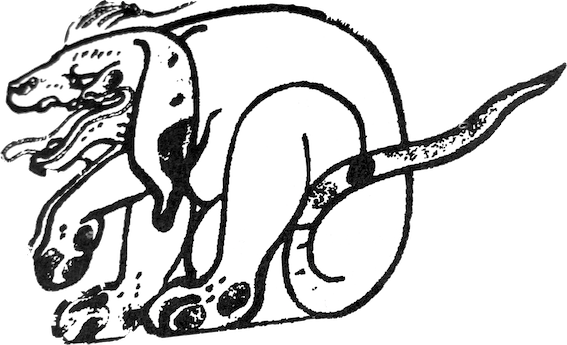
多元ナショナリズム
Plurinationalism, プルリナショナリズム
☆多 民族性、多民族的、あるいは多元ナショナリズムとは、一つの政治共同体[1](組織化された共同体または人民の集団[2])内に、二つ以上の独立した民 族集団が共存する状態を指す。多元ナショナリズムにおいて、国民性の概念は複数形であり、組織化された共同体や人々の集団内に多くの国民が存在することを 意味する。この概念から派生した多元ナショナリズム国家とは、複数の政治共同体の存在と憲法上の非対称性を指す。多元ナショナリズムの概念を用いること で、国家や国における社会の分断を回避するのに役立つ。さらに、多元ナショナリズム民主主義は、一つの政治共同体内に存在する複数のデモイ(一般大衆)を 認めるものである。[1] この用語は1980年代初頭に初めて確認されたボリビアの先住民政治運動に起源を持つとされる[4]。2022年現在、ボリビアとエクアドルは憲法上多民 族国家と定義されている[5]。アルゼンチン、チリ、コスタリカ、グアテマラでも多元ナショナリズムの提案がなされている。多元ナショナリズムは複数国民 国家と類似しているが、特に先住民によって提唱されることが多い。[6]
| Plurinationality,
plurinational, or plurinationalism is defined as the coexistence of two
or more sealed or preserved national groups within a polity[1] (an
organized community or body of peoples[2]). In plurinationalism, the
idea of nationality is plural, meaning there are many nationals within
an organized community or body of peoples. Derived from this concept, a
plurinational state is the existence of multiple political communities
and constitutional asymmetry. The usage of plurinationality assists in
avoiding the division of societies within a state or country.
Furthermore, a plurinational democracy recognizes the multiple demoi
(common people or populace)[3] within a polity.[1] Reportedly the term
has its origin in the Indigenous political movement in Bolivia where it
was first heard of in the early 1980s.[4] As of 2022 Bolivia and
Ecuador are constitutionally defined as plurinational states.[5]
Proposals for plurinationalism have also been heard in Argentina,
Chile, Costa Rica, and Guatemala. Plurinational states are similar to multinational states, but are particularly often advocated for by indigenous peoples.[6] |
多民族性、多民族的、あるいは多元ナショナリズムとは、一つの政治共同
体[1](組織化された共同体または人民の集団[2])内に、二つ以上の独立した民族集団が共存する状態を指す。多元ナショナリズムにおいて、国民性の概
念は複数形であり、組織化された共同体や人々の集団内に多くの国民が存在することを意味する。この概念から派生した多元ナショナリズム国家(plurinational state)とは、複数の政
治共同体の存在と憲法上の非対称性を指す。多元ナショナリズムの概念を用いることで、国家や国における社会の分断を回避するのに役立つ。さらに、多元ナ
ショナリズム民主主義は、一つの政治共同体内に存在する複数のデモイ(一般大衆)を認めるものである。[1]
この用語は1980年代初頭に初めて確認されたボリビアの先住民政治運動に起源を持つとされる[4]。2022年現在、ボリビアとエクアドルは憲法上多民
族国家と定義されている[5]。アルゼンチン、チリ、コスタリカ、グアテマラでも多元ナショナリズムの提案がなされている。 多元ナショナリズムは複数国民国家と類似しているが、特に先住民によって提唱されることが多い。[6] |
| Current Bolivia  Artwork in the Plurinational Legislative Assembly building, as seen in 2022 In 2009, Bolivia adopted a constitution that renamed the country to the "Plurinational State of Bolivia",[7] as spearheaded by Evo Morales.[8] Formerly, it was called the "Republic of Bolivia".[7] Later, in 2010, Morales proclaimed January 22nd to be "Plurinational State Day", an annual holiday; it coincides with the day Morales took power in 2006.[8] Ecuador In September 2008, Rafael Correa introduced a new constitution that described Ecuador as a "Plurinational and Intercultural State".[9] The new constitution also recognized 11 indigenous groups within the country.[9] The concept of Ecuador becoming a plurinational state was previously proposed in 1988.[10] |
現在の ボリビア  2022年に撮影された多民族立法議会ビル内の芸術作品 2009年、ボリビアは新憲法を採択し、国名を「ボリビア多元ナショナリズム国」と改称した[7]。これはエボ・モラレスが主導したものである[8]。以 前は「ボリビア共和国」と呼ばれていた。[7] その後2010年、モラレスは1月22日を「多元ナショナリズム記念日」とする年間祝日を宣言した。この日は2006年にモラレスが政権を掌握した日と一 致する。[8] エクアドル 2008年9月、ラファエル・コレアは新憲法を導入し、エクアドルを「多民族・多文化国家」と規定した[9]。新憲法は国内の11の先住民族集団も認めた [9]。エクアドルが多民族国家となる構想は1988年に既に提案されていた[10]。 |
| Proposed Argentina Since 1986, Argentina has been home to an annual meeting for activists to discuss gender-based inequality.[11] In 2022, the name was changed from the "National Women's Meeting" to the "Plurinational Meeting" (though two events, one under each name, were held that year).[11] In 2023, only the "Plurinational Meeting" was held, which was in the city of Bariloche.[11] Chile In Chile constitutional plurinationalism has been a topic of debate. Plurinationalism was not a concept in the constitutional reforms proposed by Michelle Bachelet's second government (2014–2018), yet the proposed reforms included recognition of Chile's indigenous peoples.[12] The 2022 proposed Political Constitution of the Republic of Chile defined Chile as "plurinational", however this proposal was rejected by a large margin in September 2022.[4][13] Prior to the dismissal of the proposed constitution the issue of pluranationalism was noted by polls and El País as particularly divisive in Chile.[14] The creation of a "plurinational region" in southern Chile has been proposed by some scholars and activists as a solution to the Mapuche conflict.[15] Plurinationalism has been criticized by José Rodríguez Elizondo as being used to advance Bolivian claims against Chile for sovereign access to the Pacific Ocean.[16] Costa Rica In August 2014, lawmakers in Costa Rica approved a first round vote for a bill that would describe the country as "multiethnic and plurinational" within the constitution of Costa Rica.[17] Guatemala In Guatemala, plurinationalism has been championed by Comité de Desarrollo Campesino[4] and the Maya Waqib’ Kej National Convergence.[18] In the Agreement on Identity and Rights of Indigenous Peoples, the government of Guatemala committed to reforms to recognize the Maya peoples, the Garifuna, and the Xinca people[18] and also reframe the country in the constitution of Guatemala as being "of national unity, multi-ethnic, multicultural and multilingual".[19] No such reforms have ever happened to date.[18] |
提案 アルゼンチン 1986年以来、アルゼンチンでは活動家たちがジェンダーに基づく不平等について議論する年次集会が開催されてきた。[11] 2022年、名称が「全国女性集会」から「多元ナショナリズム集会」に変更された(ただしその年は両名称の集会がそれぞれ1回ずつ開催された)。[11] 2023年には「多元ナショナリズム会議」のみが開催され、開催地はバリローチェ市であった. [11] チリ チリでは憲法上の多元ナショナリズムが議論の的となっている。ミシェル・バチェレ第2次政権(2014-2018年)が提案した憲法改正案には多元ナショ ナリズムの概念は含まれていなかったが、チリの先住民を認める条項は盛り込まれていた。[12] 2022年に提案されたチリ共和国政治憲法草案はチリを「多元ナショナリズム」と定義したが、この提案は2022年9月に大差で否決された。[4] [13] 憲法草案否決以前、世論調査やエル・パイス紙は多元ナショナリズムがチリ国内で特に分断を生む課題であると指摘していた。[14] マプチェ紛争の解決策として、チリ南部に「多民族地域」を創設する案が一部の学者や活動家から提案されている。[15] ホセ・ロドリゲス・エリソンドは、多元ナショナリズムがチリに対する太平洋への主権的アクセスを求めるボリビアの主張を推進するために利用されていると批 判している。[16] コスタリカ 2014年8月、コスタリカの立法府は、同国を「多民族かつ多元ナショナリズム」と憲法に明記する法案の第一読会を可決した。[17] グアテマラ グアテマラでは、多元ナショナリズムが農民開発委員会[4]とマヤ・ワキブ・ケーヘ国民連合によって推進されている。[18] 先住民のアイデンティティと権利に関する合意において、グアテマラ政府はマヤ人民、ガリフナ人民、シンカ人民を承認する改革[18]、及びグアテマラ憲法 において同国を「国民的統一、多民族、多文化、多言語国家」と再定義することを約束した[19]。しかし今日に至るまで、そのような改革は一度も行われて いない[18]。 |
| Biculturalism Composite nationalism Consociationalism Federation Multiculturalism Multilateralism Multinational state National personal autonomy Pan-nationalism Pillarisation Plurinational State of Bolivia Transnationalism Unitary state |
バイカルチュラル主義 複合ナショナリズム 協調主義 連邦 多文化主義 多国間主義 多民族国家 国民的自律性 汎ナショナリズム 柱化 ボリビア多元ナショナリズム トランスナショナリズム 単一国家 |
| References 1. Keating, Michael. Plurinational Democracy in a Post-Sovereign Order Archived 2015-09-24 at the Wayback Machine, Queen's Papers on Europeanisation No 1/2002 2. polity, dictionary.reference.com 3. demos, thefreedictionary.com 4. Burns, Nick (2022-08-29). "Chile Could Become "Plurinational." What Does That Mean?". Americas Quarterly. Retrieved 2022-09-03. 5. Lankes, Ana (2022-09-02). "The Contentious Vote in Chile That Could Transform Indigenous Rights". The New York Times. Retrieved 2022-09-24. 6. Tremblay, Arjun; Gagnon, Alain-G. (2023-01-03). "Multinational, multicultural, intercultural, and plurinational federalism". Teaching Federalism. Edward Elgar Publishing. pp. 141–153. doi:10.4337/9781800885325.00021. ISBN 978-1-80088-532-5. 7. Irazábal, Clara (2013-11-07). Transbordering Latin Americas: Liminal Places, Cultures, and Powers (T)Here. Routledge. ISBN 978-1-135-02239-6. 8. "Bolivians celebrate fourteen years of the Plurinational State". Peoples Dispatch. 24 January 2020. Retrieved 8 November 2024. 9. "Latin America is moving towards Plurinationalism, slowly but definitely". Peoples Dispatch. 25 February 2022. Retrieved 8 November 2024. 10. Sempértegui, Andrea; Báez, Michelle (2024-05-03). "Ontological Conflicts in the Plurinational State: The Case of Indigenous Resistance against the Mirador Mega-Mining Project in Ecuador". Society & Natural Resources. 37 (5): 660–677. Bibcode:2024SNatR..37..660S. doi:10.1080/08941920.2023.2228241. ISSN 0894-1920. 11. Jaureguy, Martina (2023-10-14). "Thousands are gathering in Bariloche this weekend. Here's why". Buenos Aires Herald. Retrieved 2025-05-13. 12. Soto Martínez, Víctor (2019-11-29). Análisis comparativo entre la Constitución vigente y el proyecto de reforma constitucional de Michelle Bachelet (Report) (in Spanish). Vol. 155–19. Library of Congress of Chile. 13. Vanessa Buschschlüter (5 September 2022). "Chile constitution: Voters overwhelmingly reject radical change". BBC News. Retrieved 5 September 2022. 14. Montes, Rocío (2022-08-31). "El debate sobre el reconocimiento del "Estado plurinacional" divide a los chilenos". El País (in Spanish). Retrieved 2022-09-24. 15. Marimán, José; Valenzuela, Esteban (2015). "El nuevo ciclo de movilización mapuche en Chile: la emergencia de la CAM y el proyecto autonomista para una región plurinacional" [The new cycle of mapuche mobilization in Chile: the emergence of the CAM and the project for a plurinational autonomy region]. Araucaria. Revista Iberoamericana de Filosofía, Política y Humanidades (in Spanish) (34): 279–301. 16. Bruna, Roberto (2022-07-18). "Diplomático José Rodríguez Elizondo teme que la plurinacionalidad sea funcional a la estrategia marítima boliviana". El Mostrador (in Spanish). Retrieved 2022-09-21. 17. Times, The Tico (2014-08-28). "Lawmakers vote to define Costa Rica as a multiethnic, plurinational country". The Tico Times. Retrieved 2025-05-13. 18. "As Guatemalan Democracy Falters, Indigenous Communities Stand Their Ground". NACLA. Archived from the original on 2024-12-12. Retrieved 2025-05-13. 19. "Agreement on identity and rights of indigenous peoples" (PDF). peacemaker.un.org. 10 April 1995. |
参考文献 1. キーティング、マイケル. 『ポスト主権秩序における多元ナショナリズムの民主主義』 2015年9月24日ウェイバックマシンにアーカイブ, クイーンズ・ペーパーズ・オン・ヨーロピアニゼーション No 1/2002 2. ポリシー, dictionary.reference.com 3. デモス, thefreedictionary.com 4. バーンズ、ニック (2022-08-29). 「チリは『多元ナショナリズム』になる可能性がある。それは何を意味するのか?」『アメリカズ・クォータリー』2022年9月3日閲覧。 5. ランケス、アナ(2022年9月2日)。「先住民の権利を変革する可能性のあるチリの論争的な投票」『ニューヨーク・タイムズ』2022年9月24日閲 覧。 6. トレムブレイ、アルジュン; ガニョン、アラン=G. (2023-01-03). 「多国籍、多文化、異文化間、そして多元ナショナリズム」. 『連邦主義を教える』. エドワード・エルガー出版. pp. 141–153. doi:10.4337/9781800885325.00021. ISBN 978-1-80088-532-5. 7. イラサバル、クララ (2013-11-07). 『境界を越えるラテンアメリカ:境界領域、文化、権力』 (T)Here. ラウトレッジ. ISBN 978-1-135-02239-6. 8. 「ボリビア人、多民族国家の14周年を祝う」. ピープルズ・ディスパッチ. 2020年1月24日. 2024年11月8日閲覧. 9. 「ラテンアメリカは多元ナショナリズムへ、ゆっくりだが確実に進む」. ピープルズ・ディスパッチ. 2022年2月25日. 2024年11月8日閲覧. 10. Sempértegui, Andrea; Báez, Michelle (2024-05-03). 「多元ナショナリズム国家における存在論的葛藤:エクアドルにおけるミラドール巨大鉱山開発計画に対する先住民抵抗の事例」. Society & Natural Resources. 37 (5): 660–677. Bibcode:2024SNatR..37..660S. doi:10.1080/08941920.2023.2228241. ISSN 0894-1920. 11. ジャウレギ、マルティナ (2023-10-14). 「今週末、何千人もの人々がバリローチェに集まっている。その理由とは」. ブエノスアイレス・ヘラルド. 2025-05-13 取得. 12. ソト・マルティネス、ビクトル (2019-11-29). 現行憲法とミシェル・バチェレの憲法改正案の比較分析(報告書)(スペイン語)。第 155-19 巻。チリ議会図書館。 13. ヴァネッサ・ブッシュシュルーター(2022年9月5日)。「チリ憲法:有権者が抜本的な変更を圧倒的多数で拒否」。BBC ニュース。2022年9月5日取得。 14. モンテス、ロシオ(2022年8月31日)。「『多民族国家』の承認をめぐる議論がチリ人を分断する」。エル・パイス(スペイン語)。2022年9月24 日閲覧。 15. マリマン、ホセ;バレンズエラ、エステバン(2015年)。「チリにおけるマプチェ動員の新たなサイクル:CAMの台頭と多元ナショナリズムに基づく自治 地域構想」. アラウカリア. イベロアメリカ哲学・政治・人文科学誌 (スペイン語) (34): 279–301. 16. ブルーナ、ロベルト(2022年7月18日)。「外交官ホセ・ロドリゲス・エリソンドは、多民族性がボリビアの海洋戦略に機能することを懸念している」。 エル・モストラドール(スペイン語)。2022年9月21日閲覧。 17. ティコ・タイムズ (2014-08-28). 「議員がコスタリカを多民族・多元ナショナリズム国家と定義する法案を可決」. ティコ・タイムズ. 2025-05-13 閲覧. 18. 「グアテマラの民主主義が揺らぐ中、先住民コミュニティは自らの立場を堅持する」. NACLA. 2024年12月12日時点のオリジナルからアーカイブ. 2025年5月13日閲覧. 19. 「先住民のアイデンティティと権利に関する合意」 (PDF). peacemaker.un.org. 1995年4月10日. |
| Further reading Pallares, Amalia. The Politics of Disruption, From Pluriculturalism to Plurinationalism, From peasant struggles to Indian resistance: the Ecuadorian Andes in the late twentieth century, University of Oklahoma Press, 2002, 272 pages MacDonald, Jr., Theodore. Ecuador's Indian Movement: Pawn in a Short Game or Agent in State Reconfiguration? Masnou i Boixeda, Ramón. 3. Recognition and Respect in Plurinationalism, Notes on Nationalism, Gracewing Publishing, 2002, 146 pages |
追加文献(さらに読む) パラレス、アマリア。『破壊の政治学──多元文化主義から多元ナショナリズムへ、農民闘争からインディアン抵抗へ:20世紀末のエクアドル・アンデス』オ クラホマ大学出版局、2002年、272ページ マクドナルド・ジュニア、セオドア。『エクアドルインディアン運動:短期的駆け引きの駒か、国家再編の主体か』 マスノウ・イ・ボイセダ、ラモン著『多元ナショナリズムにおける承認と尊重』、『ナショナリズムに関する覚書』、グレイスウィング出版、2002年、 146ページ |
| https://en.wikipedia.org/wiki/Plurinationalism |
|
| "Diversality"
is a conceptual term primarily used in academic and critical theory
contexts, particularly within postcolonial, decolonial, and
Afrodiasporic studies. It is not a standard English dictionary word in
common usage. The term was notably articulated in the 1989 manifesto Éloge de la créolité (In Praise of Creoleness) by the Caribbean writers Jean Bernabé, Patrick Chamoiseau, and Raphaël Confiant. They proposed it as: |
「ダイバーサリティ」とは、主に学術的・批判理論の文脈、特にポストコロニアル研究、脱植民地化研究、アフリカ系ディアスポラ研究において用いられる概念用語である。一般的な英語辞書に載っている標準的な単語ではない。 この用語は、1989年にカリブ海の作家ジャン・ベルナベ、パトリック・シャモワゾー、ラファエル・コンフィアンが発表した宣言文『クレオラリティの賛歌(Éloge de la créolité)』で特に明確に提唱された。彼らはこれを次のように定義した: |
| 1. "The conscious harmonization of preserved diversities". 2. An alternative to the Western concept of "universality," which they argued often imposed a single, Eurocentric model on the rest of the world, thereby violating alterity (otherness) and diversity. |
1. 保存された多様性の意識的な調和。 2. 西洋の「普遍性」概念に対する代替案である。彼らは、この概念がしばしば単一のヨーロッパ中心主義的モデルを世界に押し付け、それによって他者性(他者性)と多様性を侵害すると主張した。 |
| In
essence, "diversality" suggests a framework that recognizes and values
a multitude of diverse knowledge systems, cultural practices, and
identities while fostering dialogue and relationality among them, as
opposed to a singular, universal standard. It is often used in
discussions about: |
本質的に「多様性」とは、単一の普遍的な基準とは対照的に、多様な知識体系、文化的慣行、アイデンティティを認識し評価しつつ、それらの間の対話と相互関係を育む枠組みを意味する。この概念はしばしば以下の議論で用いられる: |
| a. Global citizenship education that challenges Eurocentric biases. b. Philosophies of inclusion that incorporate non-Western perspectives. c. Postcolonial ontology and a "poetics of the Idea" that accounts for a complex, interconnected world history. |
a. ヨーロッパ中心主義の偏見に挑むグローバル市民教育。 b. 非西洋的視点を組み込んだ包摂の哲学。 c. 複雑で相互に結びついた世界史を説明するポストコロニアル存在論と「観念の詩学」。 |
★Map of indigenous groups in Chile: チリの先住民分布図
リ ンク
文 献
そ の他の情報
CC
Copyleft,
CC, Mitzub'ixi Quq Chi'j, 1996-2099